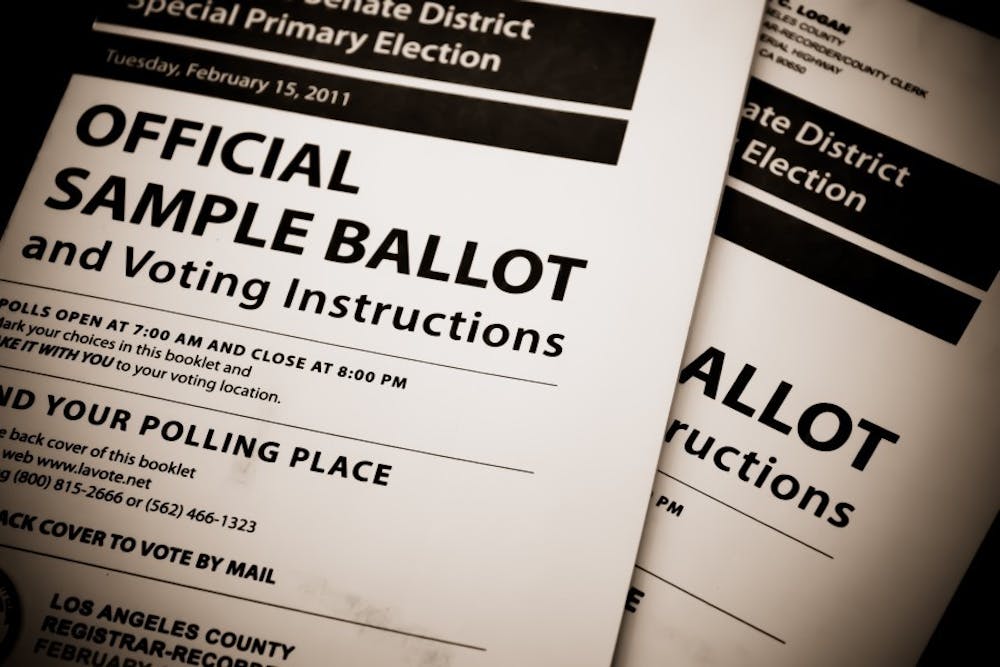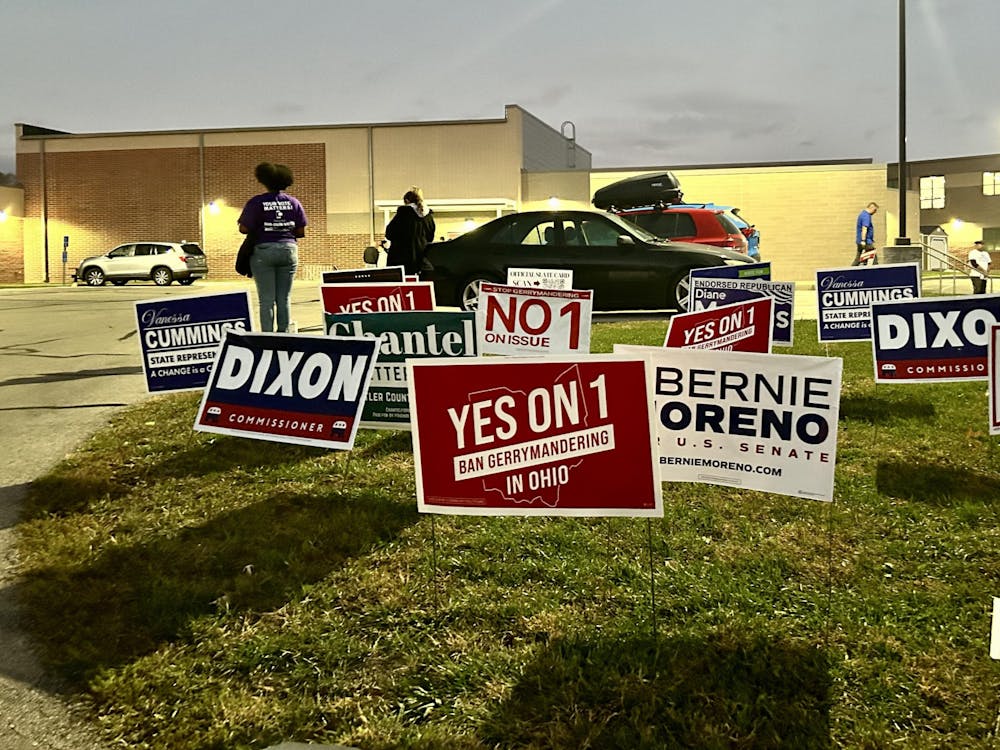By Karen Augenstein, The Miami Student
Due to a lack of voting participation among college students, Miami University launched a week dedicated to promoting citizenship and democracy, which began Monday. The week's purpose was to inform students of their civic duties and how to act on it.
Events throughout the week included voter registration, a public session from the Court of Appeals and a social justice performance where students will present a short performance designed to engage the audience in social justice.
According to the U.S. Census Bureau, only 38 percent of 18-24 year olds voted in the 2012 election, and they had the lowest number of voters of all age groups.
Similar trends exist across Butler County. In the 2012 presidential election, 71 percent of registered voters in Butler County cast their votes. For the five Oxford precincts that span Miami's campus and off-campus student housing, the turnout was only 48 percent.
Ashley Nickels, a political science professor, said many factors contribute to lack of voting involvement.
"As a college student, knowing how to vote, where to vote, whether or not you're required to do an absentee ballot, can be barrier," Nickels said. "If you're busy and working, and you're interested in voting but you've missed deadlines, can cause people to fall into the mindset of, 'I'll just do it next year.'"
Most students enter their first year of college at age 18, the legal age to vote. Monica Schneider, another political science professor, feels that such a huge transition to a temporary community affects community relationships.
"I think one of the factors that makes it harder for college students to vote is that they're only here for a couple years and might not have ties with their communities or see the effect that the government has on their lives," Schneider said.
Despite the reputation, Emma Shibley, a first-year at Miami and elected president of her hall's Community Leadership Team, believes that not all college students share an apathetic attitude toward political involvement.
"I think our generation is the most sheltered," Shibley said. "Being sheltered, we can't know exactly what it feels like to have problems that face many people in our country.
"But I also think our generation is the most sympathetic," Shibley added. "I think that for the people who are unaware, they are more unaware than Americans have ever been, but those who are aware are the most passionate."
Enjoy what you're reading?
Signup for our newsletter
Shibley said students get preoccupied with their college lives and close the blinds on larger issues. However, she said she believes there can be a benefit in this for college students to test boundaries and explore new ideas.
"Whether you're going to be involved in government or not, it's important to use trial and error without the actual consequences," Shibley said. "It still involves you, though, and the more involved you are the more close knit and safe the community will become."
Nickels said Miami students should feel excited to explore their own political ideology with their new independence.
"Once someone gets to college, it's an opportunity for those influences to be challenged or wholly understood," Nickels said. "It's the opportunity to ask tough questions of yourself or other people, ask if this is what I truly believe or is it just what I've adopted from what I've grown around."
Miami's week dedicated to citizenship and democracy was intended to promote student involvement and awareness in the political world. Schneider said being involved is directly correlated to an individual's quality of life.
"Without voting or participating politically, no one is going to pay attention to your interests and your needs," Scheinder said. "Without participating politically, you do not have a voice."




